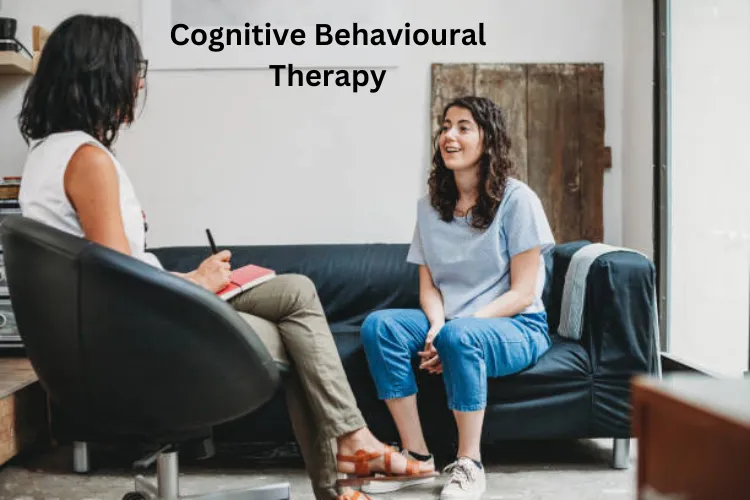“People are disturbed not by things, but by the view which they take of them.”
~Albert Ellis
You have planned to meet up a close friend of yours. You haven’t met that friend for a long time because of which you’re absolutely excited about the plan. At the end moment, a work-related emergency comes up due to which you would have to call off the plan. You end up thinking about different ways in which you could explain this to your friend. When you’re doing this, you’re thinking not just thinking from your own perspective but maybe even putting yourself in your friends’ shoes to think how they might take it.
If you think you are a bad person who cancels on plans because of which you will end up hurting that friend again then you might be looking at the situation from a negative perspective. Your thoughts would also direct your behavior negatively. Cognitive inadequacies (lack of foresight) or cognitive distortions (irrational thoughts and impaired judgement) may be the cause of this flawed thinking.
On the contrary, if you think that the work emergency cannot be delayed but you’ll definitely reschedule the meet with your friend to a date within the same week, then you’re looking at the situation from a problem-solving perspective. You also think that even though your friend would be a little hurt, you have your ways in which you can make it up to them. How you perceive the situation, defines what you feel about it. It’s always a matter of perspective. Changing the view of a negative situation to a positive or neutral one is one of the vital aspects of Cognitive Behavior Therapy.
Are you thinking about cognitive therapy? Do You Want to Speak With Experts? Consult Online Psychologist for the right solutions.
What is Cognitive Behavioural Therapy?
First and foremost, as the term suggests, it focuses on Cognitions (Thoughts) as well as Behaviors. As a psycho-social intervention, cognitive behavioural therapy (CBT) tries to lessen the symptoms of a variety of mental health concerns.
The goal of CBT is to assist people in becoming their own therapists. Patients and clients are assisted in developing coping skills so they may learn to alter their own thinking, troublesome emotions, and behaviour through activities done both during and outside of sessions.
Understanding the CBT Approach
- CBT has a strong emphasis on the Here and Now.
- Core beliefs (deep rooted beliefs about self, others and the world), Dysfunctional Assumptions (Rigid “Rules of Living”) and Automatic Negative Thoughts (Negative thoughts that arise involuntarily) are the three levels of cognitions that are looked at in Cognitive Behavioural Psychology.
- To grasp the issue and create a treatment plan, the psychologist collaborates with the client, and develops a knowledge of the issue and then together, they formulate a plan.
- Another important premise on which CBT runs is learning to face your fears rather than avoiding them. It is Problem-oriented.
- Focus of CBT is to help the clients to help themselves. They are taught to set SMART (Specific, Measurable, Achievable, Realistic, Timely) Goals.
- CBT also depends on the more general components of the therapeutic alliance, such as rapport, sincerity, comprehension, and empathy.
CBT Intervention Techniques
CBT interventions usually involve unlearning and relearning certain ways of thinking and behaving. This includes becoming aware of the distorted thinking that are a root cause of problems. There can be multiple problems but just one root cause. Those multiple problems are understood to be the symptoms of the root cause. Here are certain techniques that could help address the concerns of the client using Cognitive Behavioural Therapy.
- Cognitive Restructuring: Identification of faulty thought pattern and then restructuring them by reframing.
- Guided Discovery: Therapist challenges clients’ beliefs in order to broaden their thought pattern. Client defends the valid ones but also discards the irrational ones by learning a new perspective.
- Journaling: Includes writing down the bothersome thoughts as well as the positive ones. This helps to get in touch with reality and to put the past behind
- Worst come scenario: Imagining what’s the worst that could happen and thinking about ways to tackle it can help the individual to be prepared well in advance and reduce the fear of uncertainty
- Role playing: Can help the individual identify gaps in understanding and aid in looking at the situation through different viewpoints
- Relaxation and Stress Reduction: Techniques like deep breathing, muscle relaxation, imagery and so on are taught to lower stress and increase sense of control.
Download our app to get remedies and day-to-day therapy solutions to make your life healthy and happy.
Conclusion
CBT has been found to be effective across multiple situations. Proven by research, it used for the treatment of Anxiety, Depression, Obsessive Compulsive Disorder (OCD), Panic Disorder, Trauma Focused Counselling, Addiction, Eating Disorders, Psychosis, Body Image Issues, Generalised Anxiety, Social Anxiety, Attention Deficit Hyperactivity Disorder (ADHD), Bipolar Disorder, Post Traumatic Stress Disorder (PTSD), Schizophrenia spectrum disorders and so much more. After the deleterious effects have been brought in control through therapy, coping strategies learned during the phase of therapy can also be employed by the individual post the termination of therapy.
“Watch your thoughts, they become your words; watch your words, they become your actions; watch your actions, they become your habits; watch your habits, they become your character; watch your character, for it becomes your destiny”
Experience CBT through our online experts to develop a positive outlook towards life, its trials and tribulations.



